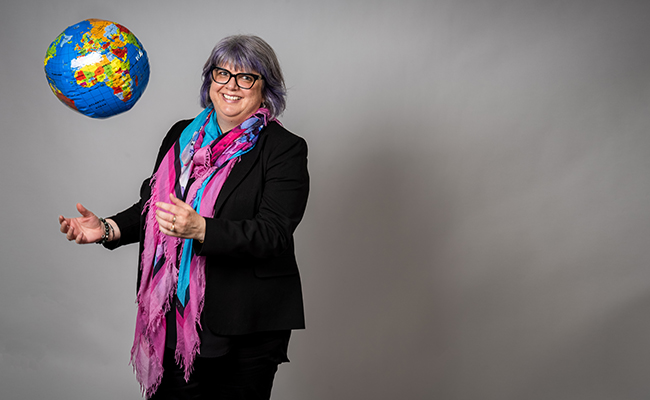
Professor Robin Turner, explains how the world of biostatistics helps ensure research investigations produce accurate results.
Robin Turner's journey to biostatistics was a bit of a roundabout one.
When she was a child, she wanted to be an astronaut.
A few years later she decided that being an astronomer was a more viable career option, so studied physics, astronomy, and mathematics.
That, in turn, led her to biostatistics.
“I wanted to do research that improves people's lives.
“I get to work in a wide range of areas where I can apply my biostatistical expertise to answer these questions which hopefully improve the health care of New Zealanders.”
Biostatistics is the science of using statistics to answer health-related research questions – for example, biostatistics may be used to help learn the possible causes of disease and how often that disease occurs in a certain group of people.
It also involves developing the methodology behind a research investigation to ensure that it will accurately answer the question(s) posed by the investigation.
This means that, as the Director of the University of Otago's Biostatistics Centre, Professor Turner works on a variety of health projects that have the potential to shape New Zealand healthcare outcomes by ensuring the validity of their results.
She admits that even she had no idea of what a biostatistician was, but now can't imagine doing anything else.
After living in Australia for 12 years, she returned to New Zealand because she “couldn't resist” the opportunity to lead a group of biostatisticians to help create an environment where biostatistics could grow and thrive.
She wants the discipline to flourish because she believes that there is an increasing demand for biostatisticians to undertake high quality research as the world continues to produce increasing amounts of data.
Like her own non-linear journey, many biostatisticians come from different backgrounds, accidentally finding the profession, she says.
“If you like working in different areas, thrive on juggling projects that are vastly different, love problem solving, and communicating well with others, this could be the job for you,” she says.
Kōrero by the Health Sciences Divisional Adviser, Kelsey Schutte.
